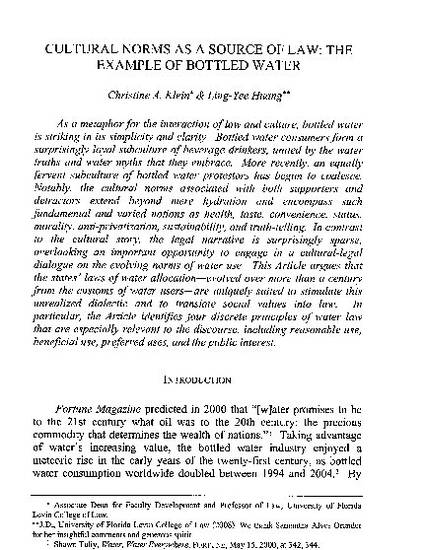
As a metaphor for the interaction of law and culture, bottled water is striking in its simplicity and clarity. Bottled water consumers form a surprisingly loyal subculture of beverage drinkers, united by the water truths and water myths that they embrace. More recently, an equally fervent subculture of bottled water protestors has begun to coalesce. Notably, the cultural norms associated with both supporters and detractors extend beyond mere hydration and encompass such fundamental and varied notions as health, taste, convenience, status, morality, anti-privatization, sustainability, and truth-telling. In contrast to the cultural story, the legal narrative is surprisingly sparse, overlooking an important opportunity to engage in a cultural-legal dialogue on the evolving norms of water use. This Article argues that the states' laws of water allocation -- evolved over more than a century from the customs of water users -- are uniquely suited to stimulate this unrealized dialectic and to translate social values into law. In particular, the Article identifies four discrete principles of water law that are especially relevant to the discourse, including reasonable use, beneficial use, preferred uses, and the public interest
